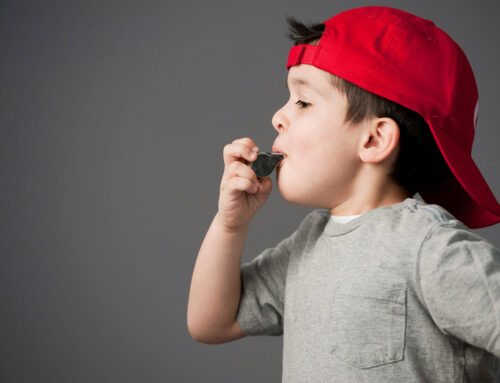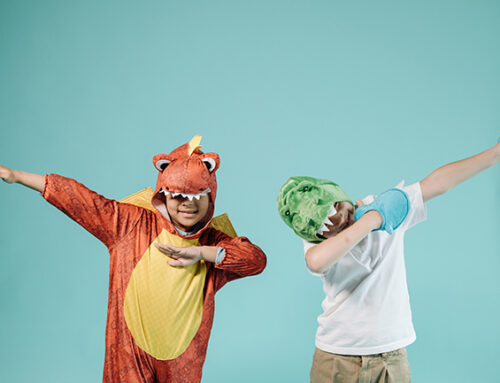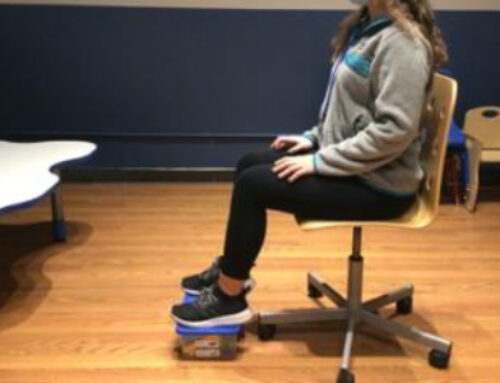Stephanie is a Pediatric Physical Therapist at Blue Bird Day. For many parents with a child involved in physical therapy, their previous experiences come from their time spent in Early Intervention (EI). Physical therapy in Early Intervention focuses primarily on developing a child’s gross motor milestones such as sitting, crawling, and walking. However, there are many more physical demands put on children as they grow and develop and it is Stephanie’s job to recognize the full potential of every child she treats. She describes how Blue Bird Day’s unique physical therapy program can do so much more for child development and what motivates her to excel in her role.
Stephanie leads the kindergarten PT rotation where she provides a safe and structured approach to work on gross motor skills. Physical therapy works on stairs, balance, strength, endurance, climbing, team sports and coordination. Aside from targeting gross motor skills, evidence shows that physical therapy focused on visual motor skills can also increase social functions in children when it comes time to interact with their peers.
This confidence boost makes the physical therapy rotation a perfect environment for children to participate in group activities. Additionally, improving a child’s strength, endurance, and posture can have an impact on their abilities to engage and participate in academic tasks within the classroom as well as during feeding routines. Additionally, Stephanie is one of the therapists that provides Extended Day services that go beyond the program to allow for more individualized attention.
The Path To Becoming a Pediatric Physical Therapist
Experiences at Eyas Landing and other outpatient pediatric clinics combined with her long-standing role as a camp counselor have given Stephanie a tremendous foundation in working with kids with special needs. In fact, it was her time working as a camp counselor and inclusion aide for children on the spectrum that led to her choosing pediatrics for her own career. She was already majoring in biology and knew she wanted to work in health care.
While contemplating which career path to pursue, Stephanie returned to the physical therapy practice to where her twin sister received treatment as child for an observation. Stephanie had fond memories of this PT team helping her sister and that’s when everything clicked for her. Pediatric physical therapy connected the population she wanted to work with and the medical background she was pursuing. Physical therapy incorporates the biological aspects of how bodies work, is hands on and requires creativity and flexibility, all areas that appealed to Stephanie. It was a perfect fit!
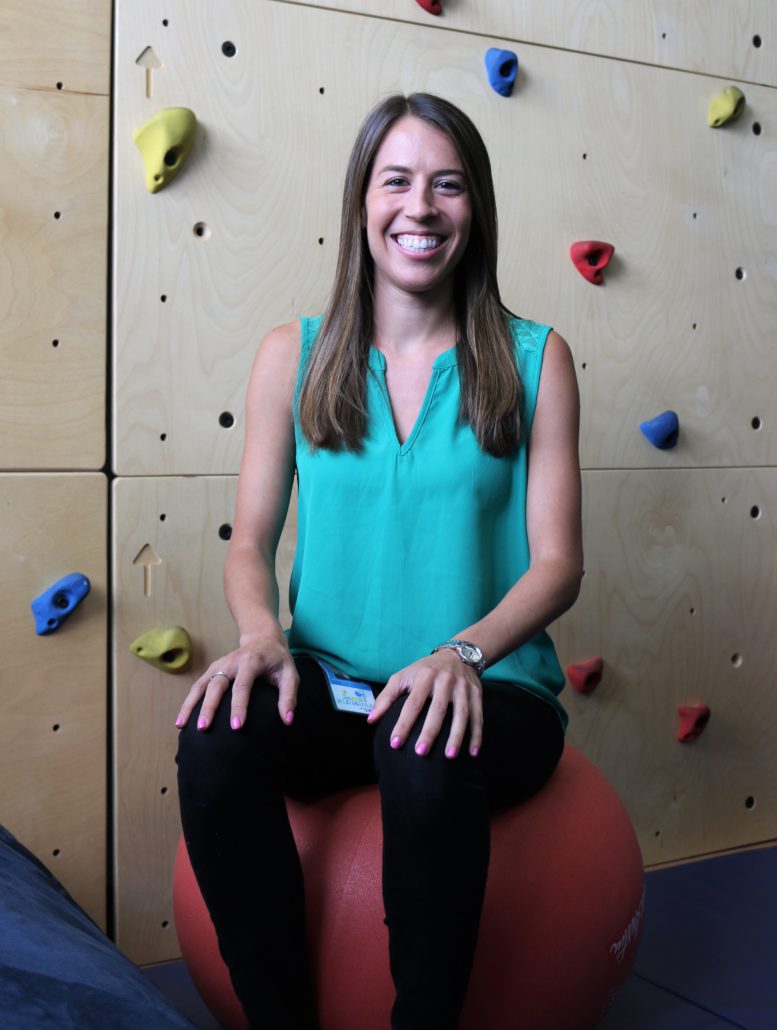
How Pediatric Physical Therapy is unique at Blue Bird Day
Stephanie thinks of physical therapy at Blue Bird Day as one integral piece of a much larger picture. For the team of therapists working with each child, it is imperative to understand how those pieces connect. What she is working on with a child correlates with therapists from other disciplines, but she is coming at it from different approach.
She gives a great example of how the disciplines differ using an obstacle course. The occupational therapist may be challenging the child to follow the directions of the obstacle course or assist in creating the steps. The speech therapist is asking the child to communicate about the different aspects of the course. The physical therapist is making sure the child has the strength and balance to get through the course. All of these perspectives are equally valid and work together to ensure a comprehensive treatment is being provided to the child.
She believes that this is what makes the program so effective as it produces faster progress and more trusting relationships with the children. The physical therapy team that she is a part of come from diverse career backgrounds, with experience treating both pediatric and geriatric populations. Together they learn from their collective experiences to best treat each child in an individualized and comprehensive manner.
There are three main theories of practice the PT team uses during their sessions. Motor Control Theory focuses on how the nervous system plays a role in helping to learn, adapt, and perform motor skills. Biomechanical Model focuses on how the body’s alignment in regards to postural control, strength, range of motion, and endurance plays a vital role in impacting a child’s performance throughout their daily tasks. Neurodevelopmental Treatment is a hands-on approach that uses handling techniques to learn and practice new motor patterns for increased independence and participation. They also utilize occupational therapy strategy DIR/Floortime as it allows the therapist to follow the child’s lead and can be an effective method to improve a child’s engagement in session activities.
Stephanie’s commitment to her role is unmistakable, and for her, seeing a child be proud of their accomplishments is the most rewarding part of the day. Watching a child cheer after they accomplish a skill they previously avoided is incredibly gratifying to her. Reaching these goals takes patience, problem solving, communication and of course, a lot of fun! The reason she is so drawn to pediatrics is because she can see what a big impact it is having on her clients. The goals she works on with the kids will be used for the rest of their lives.
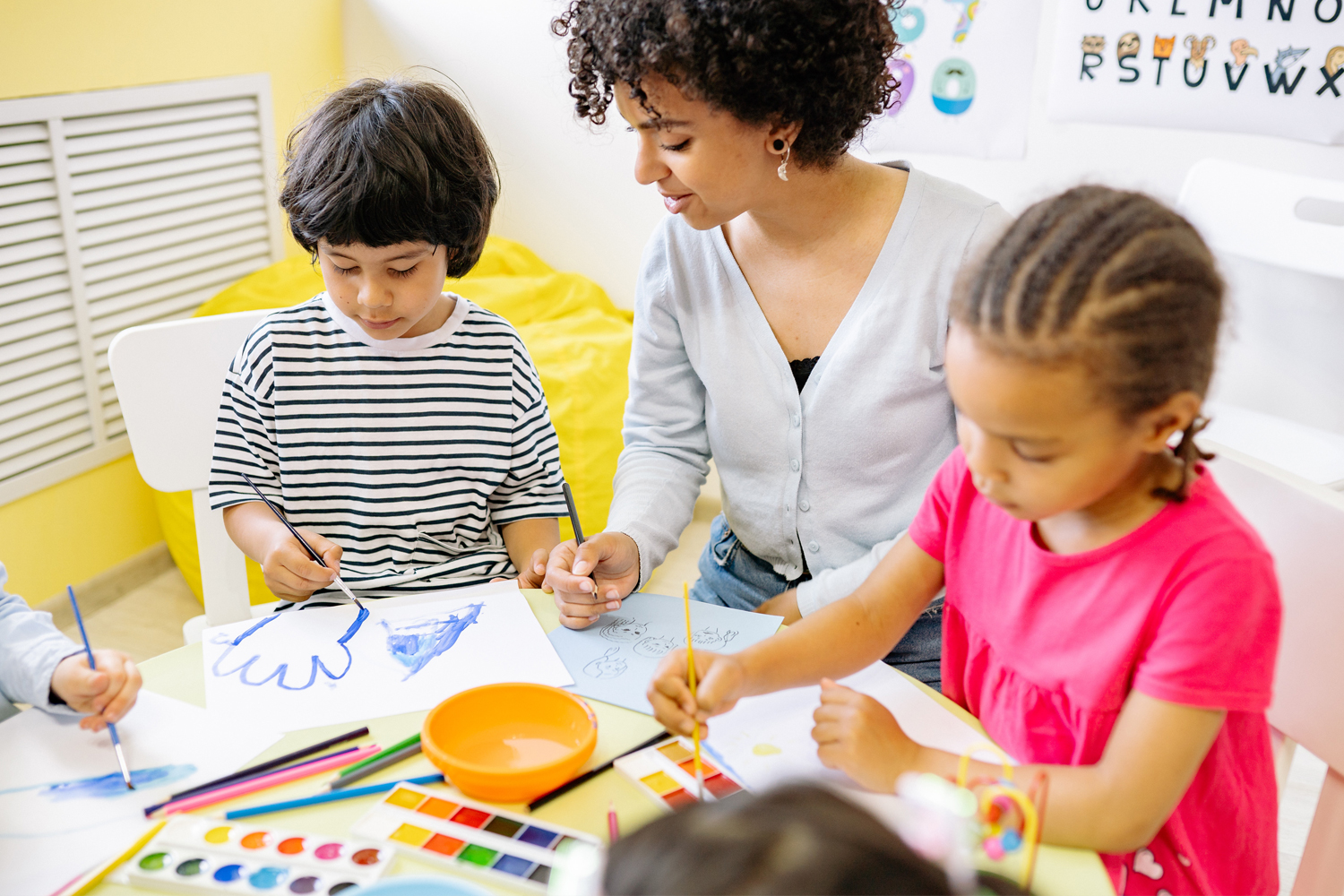
Blue Bird Day fosters socialization, sensory regulation, and pre-academic learning in children ages 2-7 years in therapeutic rotations that simulate preschool and kindergarten settings. Our compassionate therapists practice a relationship-based and family-centered approach, provide parent training, and collaborate on goals and individualized intensive treatment plans for your child.
We believe in a collaborative and multi-disciplinary team approach to therapy. A team of occupational therapists, speech-language pathologists, dietitians, developmental therapists, behavioral therapists, physical therapists, and therapeutic assistants are created for each child to ensure child and family are fully supported and the best possible results are achieved.
Options for individualized, group and virtual therapy sessions are available as well.
Want to learn more or you have a specific question? Feel free to connect with us here!

